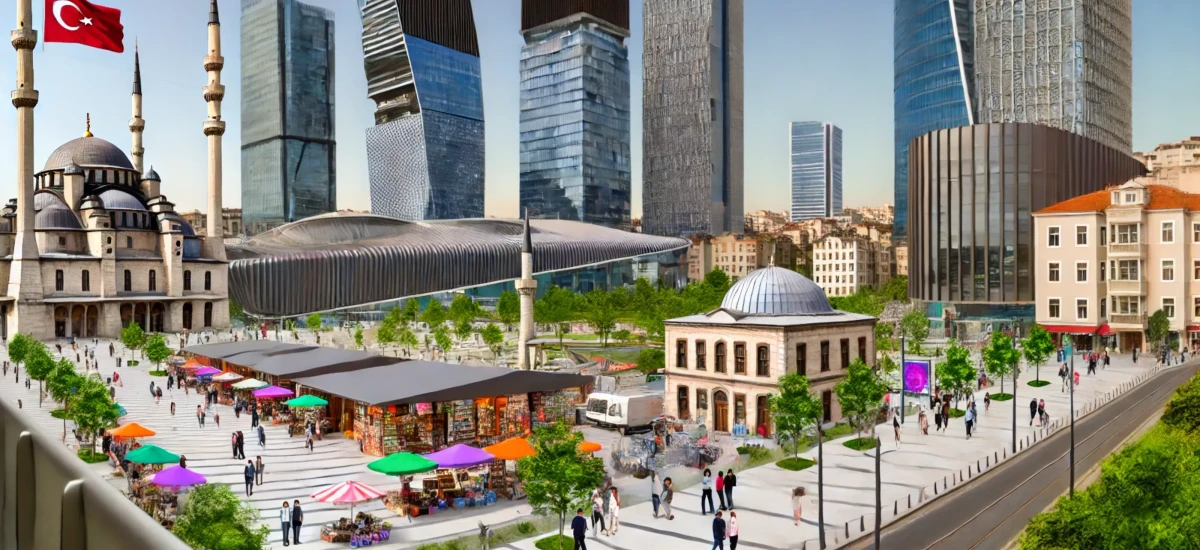Istanbul, Turkey's largest and most populous city, stands out for its historical and cultural richness, but it is also located in a region at risk of earthquakes. The city sits on a major fault line, which makes earthquake safety a crucial factor when it comes to urban planning and construction. When considering real estate investments such as apartments for sale in Istanbul or Istanbul villas, buildings with earthquake resistance and solid soil areas are of great importance. In this blog post, we will discuss what you need to know about earthquake resistance in Istanbul and the characteristics of solid soil areas.
Earthquake Risk and Soil Features in Istanbul
Istanbul is located near the North Anatolian Fault, which is the source of the region's seismic activity. Therefore, the impact of a major earthquake could be significantly felt in the city's residential areas. However, not all areas of Istanbul carry the same level of risk. Soil characteristics directly affect the earthquake safety of a region. The quality of the soil can have a major impact on structures; for example, soft soils can amplify the intensity of an earthquake, while solid soils can help buildings sustain less damage.
Solid Soil Areas in Istanbul
One of the most important factors for earthquake safety in Istanbul is the type of soil on which buildings are constructed. Solid and durable soils minimize the effects of an earthquake. For those looking for apartments for sale in Istanbul, areas with solid soils should be prioritized. So, which areas in Istanbul are known for solid soils?
- High Hills and Rocky Areas Surrounding the Bosphorus: The high hills and rocky terrains along the Bosphorus are more resistant to earthquakes. The soil in these areas is generally harder, which allows for the construction of safer buildings. Istanbul villas and luxury housing projects are often located in these areas.
- Beykoz and Çekmeköy: Located on the Asian side of Istanbul, districts like Beykoz and Çekmeköy have solid soil structures that enhance earthquake resistance. These areas are popular for both apartments for sale in Istanbul and villas, offering safe living spaces for those seeking peace of mind.
- Kandilli and Üsküdar: Kandilli and Üsküdar, located near the Bosphorus, are known for their rocky and solid soils. These regions are among the lowest-risk areas for earthquakes in Istanbul. For those looking to invest in Istanbul villas or apartments for sale in Istanbul, these regions offer a secure choice.
- Higher Areas in Fatih and Beşiktaş: The higher parts of central districts like Fatih and Beşiktaş also have solid soils. The construction in these areas is more modern, with new buildings adhering to earthquake-resistant regulations. These areas provide a solid foundation for both residential and commercial real estate investments.
Earthquake-Safe Building Construction
Solid soil is the foundation of earthquake-resistant buildings. However, the construction methods used in building the structure are also crucial. New buildings in Istanbul are constructed using modern construction techniques and in compliance with earthquake-resistant regulations. Buildings constructed after 2000 are designed according to Turkey's earthquake management standards, making them much more resistant compared to older structures. However, older buildings can still pose risks, so when purchasing apartments for sale in Istanbul, it is important to check the building's construction date and soil survey report.
Moreover, significant improvements and strengthening efforts for earthquake safety in Istanbul also play a large role. Many older buildings have been retrofitted to meet earthquake standards or have been demolished and rebuilt. These efforts are widespread in both Istanbul villas and apartments for sale in Istanbul projects.
Measures to Ensure Earthquake Safety
Earthquake safety involves not only living in areas with solid soils but also considering the quality of the construction and materials used in the building. Earthquake-resistant buildings feature the following:
- Soil Survey: A good soil survey ensures that the building is solid and safe.
- Compliance with Earthquake Management Regulations: Modern construction in compliance with earthquake regulations increases the building's resilience.
- Strengthening and Renovation: Strengthening and renovation works must be done on older buildings.
- Earthquake Preparedness Training: Educating residents on how to act during an earthquake is essential.
When making real estate investments such as apartments for sale in Istanbul or Istanbul villas, earthquake-resistant buildings and areas with solid soils should be a top priority. The soil structure and construction techniques are key to creating a safe living environment. Solid soil residential areas can be found in various parts of Istanbul, and investments in these regions offer both earthquake resistance and long-term value appreciation. Therefore, it is important for those planning to invest in Istanbul to consider factors such as soil surveys and building safety.





